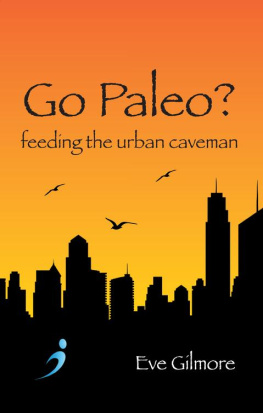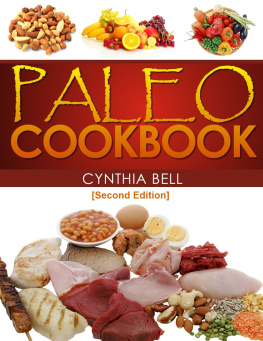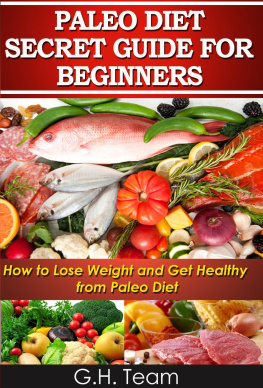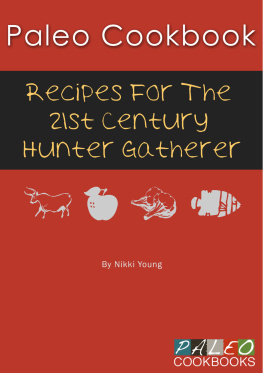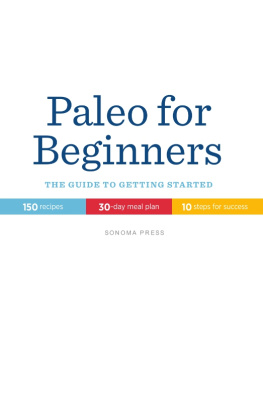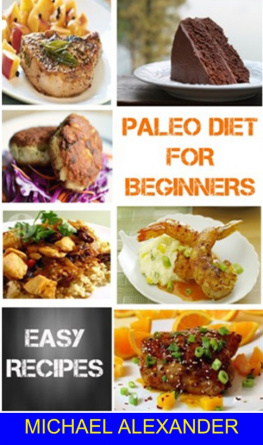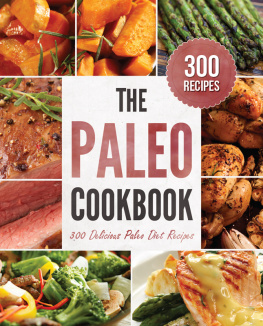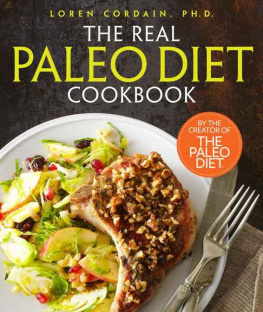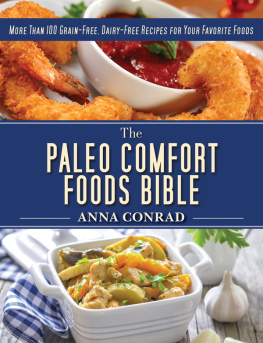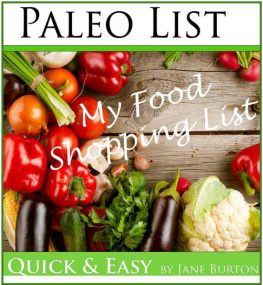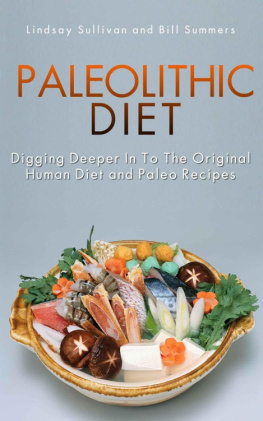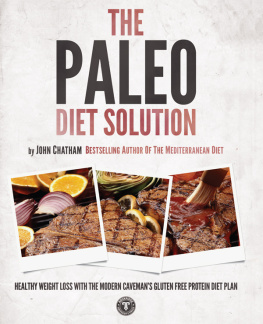First published in 2014 by Hammersmith Health Books an
imprint of Hammersmith Books Limited
14 Greville Street, London EC1N 8SB, UK
www.hammersmithbooks.co.uk
2014, Eve Gilmore
All rights reserved. No part of this publication may be reproduced, stored in any retrieval system or transmitted in any form or by any means, electronic, mechanical, photocopying, recording or otherwise, without the prior permission of the publishers and copyright holder.
Whilst the advice and information in this book are believed to be true and accurate at the date of going to press, neither the author nor the publisher can accept any legal responsibility or liability for any errors or omissions that may be made.
British Library Cataloguing in Publication Data: A CIP record of this book is available from the British Library.
ISBN (print edition): 9781781610473
ISBN (ebook): 9781781610480
Commissioning editor: Georgina Bentliff
Designed and typeset by: Julie Bennett, Bespoke Publishing Ltd
Index: Dr L Errington
Production: Helen Whitehorn, Path Projects Ltd
Printed and bound by: CPI Group (UK) Ltd, Croydon, CR0 4YY
In your lifetime you are likely to eat your way through the equivalent weight of six elephants or 60,000 paperbacks. Diet has never attracted as much attention or controversy as it does today and never before has there been so much emphasis on health. In the UK we have a fitness industry telling us how to move about, a weight loss industry worth 2 billion a year, and a sickness industry known as the National Health Service, which is now bankrupt. In spite of all the resources directed towards health, in Britain today 60 per cent of adults and almost a third of children are overweight and minor health problems such as low energy compromise the ability of many of us to live life to the full.
Old age is no longer viewed as a positive final chapter distinguished by independence, wisdom and experience. Instead it has become the spectre overshadowing our middle years and looked upon with dread, if looked upon at all, as it is nearly always synonymous with degeneration or loss of dignity. So is decline an inevitable part of the ageing process and should you therefore accept your fate with equanimity, or could it be that you have the power to shape your health destiny?
It appears that rather than being deterministic, genes are turned on and off by environmental triggers including diet. This puts us firmly behind the wheel and shifts our genes into the back seat from where they may proffer helpful navigational advice, but whether we take it is up to each of us. Freeing yourself from the media bandwagon, which tends to lurch from one health fad to another, and learning how to thrive rather than survive could be the most life-changing decision you will ever make for you and your family. You wont, however, learn how to do this by looking at the tip of the disease iceberg, as disease strikes when the system becomes overloaded and the body-boat is starting to sink. Expelling unwanted cargo, steering towards calmer seas and getting the boat ship-shape again are better options than simply plugging the symptom holes.
In Go Paleo? you will discover how the modern diet increases your risk of chronic disease and why a way of eating based on hunter-gatherer or Paleo principles is one of the most effective means of offloading unnecessary cargo and setting your ship towards calmer waters. If you would like to know what to feed your family, or can answer yes to any of the following questions, this book might be just what you have been waiting for:
- I dont have as much energy as I used to
- I have niggling problems, like allergies, headaches or indigestion
- I have irritable bowel or sometimes feel bloated
- I would like to sleep better
- My concentration and memory are poor
- I sometimes feel depressed for no reason
- I am less able to cope with stress and sometimes feel overanxious
- I get irritable if I am hungry
- I would like to lose weight but have difficulty controlling what I eat or cannot lose weight in spite of eating less
- I feel stiff and achy first thing
- I have hormonal or fertility problems.
Good health and vitality are your birth right, so lets widen our perspective and go far back to a time when disease was unknown. The evolutionary model can tell us everything we need to know about the lifestyle best suited to our caveman genes which have hardly changed in millennia. Our Stone Age ancestors, and the few remaining huntergatherers, are noted for their stamina, athletic physique and absence of disease. This wasnt because they led short, brutal lives. Provided they survived infancy they could expect to enjoy a long and healthy lifespan. The sad truth is today, from pasty-faced couch potatoes to those sweating it out in the gym, we are poor specimens in comparison.
Virtually non-existent before the Industrial Revolution, digestive problems have become widespread amongst all age groups and it is estimated that between 60 and 70 million people worldwide suffer from indigestion or poor bowel function. Puberty often marks the onset of hormonal problems, acne or mental health disorders; and infertility is rising exponentially amongst those of child-bearing age. Cardiovascular disease and diabetes, formerly only affecting the elderly, are striking at a younger age, whilst chronic diseases generally continue to rise.
Today it is sometimes said that we are digging our graves with our knife and fork. Food and agriculture have become big business and when money is involved facts tend to get lost. Science has been hi-jacked by those who can pay the highest prices, and in the mainstream media news relating to health may actually be little more than marketing copy. This is one of the reasons why there is so much conflicting advice about health and diet. Millions are spent on generating misinformation purporting to be about health but which is often promoting foods produced by the industry itself or dissuading people from eating foods which are less profitable to produce. Healthy profits tend to come before healthy people. Furthermore, research is expensive and undertaking it has become inaccessible to all but the highest bidders, making it almost impossible to obtain unbiased information. Meanwhile, the juggernaut of health dogma that has infiltrated medical thinking, the food industry and the media ploughs on. Within a few decades foods previously considered healthy, such as animal fats and red meat, have been demonised, even though they have been the mainstay of the human diet for millions of years.
So instead of throwing money at disease in an attempt to understand how to suppress it, it can be more revealing to study what promotes health. The evolutionary model suggests that the Paleo diet, low in carbohydrate and high in saturated fats and animal produce, may represent the optimal way of eating. Enjoyed by humans for over two and a half million years, study after study has associated the hunter-gatherer diet with strength, longevity and the absence of disease.
So what is the Paleo diet?
First, it is important to state there is no such thing as the Paleo diet per se. Pre-agricultural diets were regionally variable and seasonally cyclical. In colder climates they tended to be meat-based as the land was either under snow for much of the year or of poor quality and only suited to grazing. In warmer regions fewer red meats were eaten and fruits and plants dominated. Although the ancestral diet may have varied in content, it was more nutrient dense than that of today. So although no standardised Paleo diet exists, the Paleo diet is usually defined by what it excludes, and is generally accepted as being grain, legume and dairy free.

